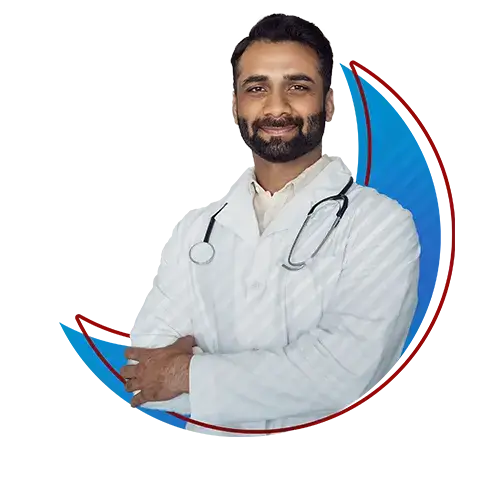Accreditation for Cardiology Practices
Dedicated Accreditation Support
A dedicated AASM accreditation coordinator will be assigned to you right from the start. Your coordinator will address your questions, facilitate the application process, and be available to resolve any issues throughout your accreditation term.
Seamless Submission Process
The online digital accreditation application will clearly show what needs to be submitted and help move you through each milestone of the accreditation process.
Promote Your Accredited Practice
Once accredited, your practice will be included in the popular “Find a Physician” tool on sleepeducation.org and you’ll have access to a press release template to demonstrate to patients, other providers and payers the quality care you provide.
30 million adults in the U.S. have obstructive sleep apnea.
85%
Of people with treatment-resistant hypertension also have sleep apnea.
58%
Of middle-aged men with severe sleep apnea have an increased risk of developing heart failure.
50%
Of diagnosed patients go untreated.
2X-4Xs
Higher risk of atrial fibrillation found in people who suffer from sleep apnea.
30-40%
Of people with high blood pressure have obstructive sleep apnea.
2Xs
Higher risk of having a stroke for people with severe, untreated sleep apnea.
A Robust and Beneficial Partnership
This multidisciplinary partnership is the best way to expedite patient continuity of care and demonstrate to both patients and payers that the highest quality care is delivered in the pursuit of both heart health and sleep health.
 Benefits for Cardiologists
Benefits for Cardiologists
- The connection between sleep apnea and heart health, makes AASM cardiology practice accreditation the right solution for all cardiology practices dedicated to providing the high-quality patient-centered care.
- The multidisciplinary approach in partnership with an AASM Accredited Sleep Facility enhances patient confidence and outcomes and improves the continuity and efficiency of patient care.
- Accreditation validates the practice has met AASM’s rigorous quality standards for patient care differentiating the practice within their local community.
- Promoting cardiology practices earning the cardiology practice accreditation are featured through the AASM and its affiliated websites including SleepEducation.com
 Benefits for Sleep Facilities
Benefits for Sleep Facilities
- Ensures that sleep facilities and board-certified sleep specialists are at the center of managing patients with sleep disorders.
- Demonstrates the desire to improve collaboration between other health care partners for the benefit of improved sleep care access and patient health.
- Collaboration between other health care partners will increase referrals to the sleep facility for in-center testing and to board-certified sleep specialists for management of sleep disorders resulting in higher patient volume and increased service reimbursements.
Benefits for Administrators
- The reduced wait times for cardiology practices with access to home sleep apnea testing can help reduce wait times for diagnostic testing, ensuring that patients get timely care.
- Timely testing and diagnoses of sleep apnea in cardiology patients can lead to earlier diagnosis and treatment, potentially preventing cardiovascular complications.
- Increased availability of home sleep apnea testing in cardiology practices improves patient access to essential diagnostics, especially in regions without sleep clinics or specialists.
- Simplified diagnostic processes enable patients to address both their heart and sleep conditions in a single healthcare setting yielding more efficient and coordinated quality care.
40-80% of patients with cardiovascular disease are more likely to have comorbid obstructive sleep apnea.
“People who have severe, untreated obstructive sleep apnea have a much higher risk of cardiovascular disease. By encouraging cardiologists to screen and test for sleep apnea, we can work together to reduce the burden of undiagnosed sleep apnea while enhancing both sleep health and heart health.”
Raman Malhotra, MD | AASM President 2022
One Time Initial Accreditation Application Fee
Non-Sleep Clinic: $500
HSAT Diagnostic: $4,500
* Newly accredited practices receive one year of complimentary facility membership.
- 5 Year Term (or $900/year)
- Add additional accredited location(s) at a lower rate of $500/each
Learn More
Learn more about how AASM’s cardiology practice accreditation can add value to your site and enhance your patient’s treatment by calling (630) 737-9700 or fill out our contact form and a friendly representative will reach out to you.

 Benefits for Cardiologists
Benefits for Cardiologists Benefits for Sleep Facilities
Benefits for Sleep Facilities 